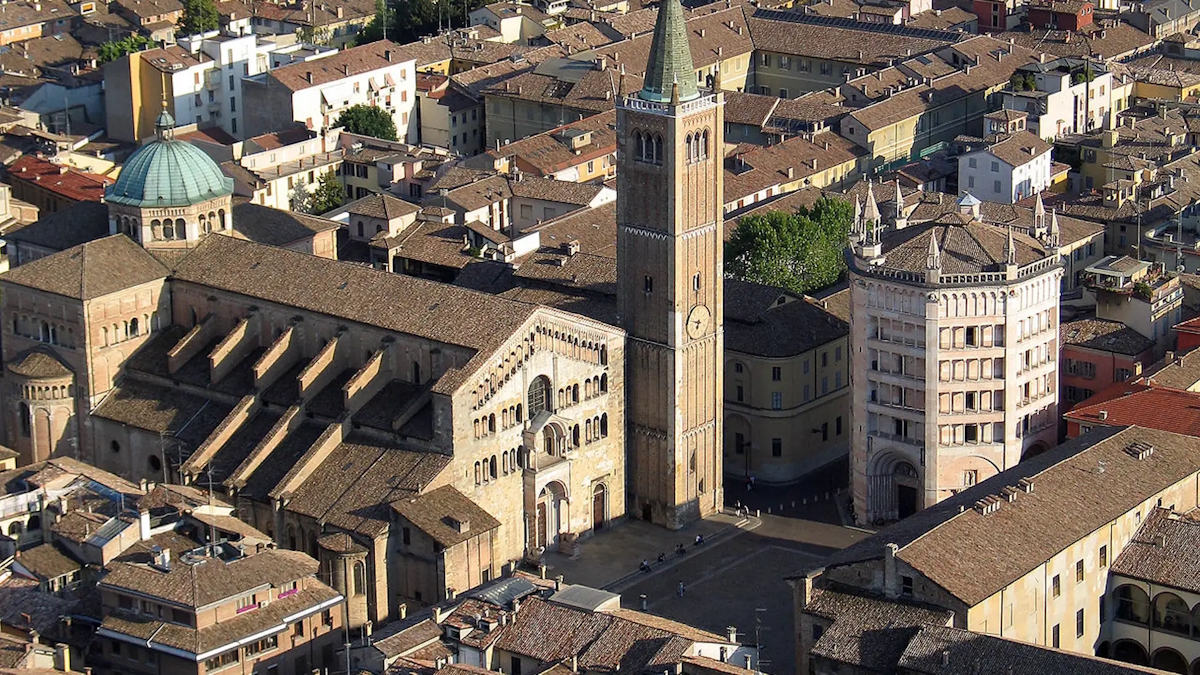As cities around the world race to meet ambitious climate goals, Parma, Italy, is emerging as a model for integrating citizen engagement with cutting-edge technology to achieve climate neutrality by 2030. Spearheaded by City Green Light and recognized with the SMAU Innovation Award 2025, the initiative combines digital platforms, sustainability education, and participatory tools. At the heart of this effort lies a bold vision: to transform urban living through collective action, data-driven innovation, and the strategic use of artificial intelligence.

City Green Light has been awarded the prestigious SMAU Innovation Award 2025 for its groundbreaking citizen engagement initiative developed in collaboration with the Municipality of Parma. This project, designed to support the city’s commitment to becoming climate neutral by 2030, aligns with the company’s strategic vision: to accompany Italian cities through a dual ecological and digital transition, empowering individuals to actively participate in shaping sustainable urban environments. The initiative stands as a compelling example of how technology, civic responsibility, and institutional coordination can converge to address one of the most pressing challenges of our time—climate change.
The project, titled “Together Towards Parma Climate Neutral 2030”, leverages the AWorld platform, which serves as the official application of the United Nations for the Act Now campaign. This digital community invites citizens to participate in themed missions, record sustainable actions in their daily lives, explore educational content, and collectively work toward measurable environmental goals. By gamifying sustainability through a reward system that includes experience points, gems, and milestones, the platform fosters not only individual accountability but also a shared sense of purpose. It transforms climate action into an accessible and engaging experience, effectively building a participatory culture around sustainability.
The role of artificial intelligence (AI) in initiatives of this nature cannot be overstated. AI has the potential to significantly enhance both the scope and impact of citizen engagement projects by enabling data-driven personalization, real-time feedback, behavioral analytics, and dynamic optimization of urban services. For example, machine learning algorithms can analyze user behavior on platforms like AWorld to identify which types of content or challenges most effectively drive engagement and sustainable action. AI can also help cities to better understand patterns of energy consumption, transportation habits, or waste management practices, thereby enabling more targeted interventions. In future iterations, AI integration could allow platforms to provide predictive insights and individualized sustainability plans, customized according to a citizen’s location, lifestyle, or environmental impact, making the concept of a “smart citizen” as central as the notion of a smart city.
The origins of this initiative are rooted in City Green Light’s long-term involvement in Parma’s infrastructure. Since 2016, the company has managed the city’s public lighting network, which has undergone substantial upgrades through an investment of €10 million. Over 24,800 lighting points have been modernized, resulting in a 67% reduction in energy consumption and an annual decrease of more than 5,400 tons of CO₂ emissions. These results have encouraged the company to broaden its role from a technical service provider to a proactive facilitator of civic participation and environmental awareness. The project thus represents not only an investment in technology, but also a social innovation strategy aimed at democratizing access to sustainable living.
Moreover, the Parma project is deeply inspired by the concept of the “sensible city,” as articulated by Carlo Ratti at the Massachusetts Institute of Technology (MIT). Unlike the conventional “smart city” paradigm, which emphasizes digital infrastructure and automation, the sensible city emphasizes responsiveness, empathy, and adaptability. It envisions an urban space that is capable of perceiving, interpreting, and responding to the needs of its inhabitants. In this framework, AI becomes a sensitive instrument—capable of analyzing vast volumes of urban data while adapting services in real-time based on human behavior and environmental conditions. This vision of the city as a responsive ecosystem is increasingly feasible due to the convergence of the Internet of Things (IoT), AI, and participatory platforms.
City Green Light is already laying the groundwork for this transformation through a series of integrated projects—ranging from remote monitoring of infrastructure to the development of renewable energy communities. In all of these efforts, AI has the potential to play a critical role by optimizing energy distribution, detecting maintenance needs before they become critical, and improving the efficiency of resource management systems. Furthermore, AI can strengthen the feedback loop between public administrations and residents by facilitating more precise and timely communication, thus deepening public trust and encouraging long-term engagement.
Nationally, City Green Light stands as Italy’s leading private operator in public lighting and a major player in the field of smart urban services. The company is active in 16 regions, partners with over 350 public administrations, and delivers services to more than six million citizens. Its growing influence in the energy transition space is supported by measurable results: efficiency initiatives across the country have led to an annual reduction of over 92,000 tons of CO₂ emissions. On the economic front, the company concluded its 2024 fiscal year with a net profit of €36.7 million and a production value of €176.5 million, confirming the sustainability and scalability of its business model.
The broader implication of projects like “Together Towards Parma Climate Neutral 2030” lies in their capacity to reframe the relationship between citizens, institutions, and technology. As societies confront the overlapping crises of climate change, energy insecurity, and urbanization, it becomes increasingly clear that technological solutions alone are insufficient. What is required is a socio-technical paradigm in which technology is human-centered, transparent, and inclusive. Artificial intelligence, if designed ethically and used responsibly, can serve as the connective tissue that binds together environmental goals, digital infrastructure, and civic participation.
As Alessandro Bortoletto, Innovation Manager at City Green Light, aptly stated, “The ecological transition cannot occur without the direct contribution of people. With this project, we have demonstrated that technology is not only a tool for optimizing infrastructure, but also a bridge that activates dialogue with citizens, encourages sustainable behaviors, and makes every individual a protagonist of change.” The data from the project’s launch phase substantiates this claim: over 1,400 actions were recorded on the platform in the first month alone—a tangible sign of public interest and participation.
By earning the SMAU 2025 award, City Green Light consolidates its role as a transformative actor in Italy’s digital, ecological, and energy transition. The company is not merely lighting streets—it is illuminating the path to a future where cities are intelligent not only in terms of their infrastructure, but also in their capacity to listen, adapt, and co-evolve with their citizens. In such a future, artificial intelligence will not be an abstract concept reserved for laboratories and tech companies, but an integral part of everyday life—quietly guiding decisions, improving systems, and enabling a more conscious and sustainable way of living.
